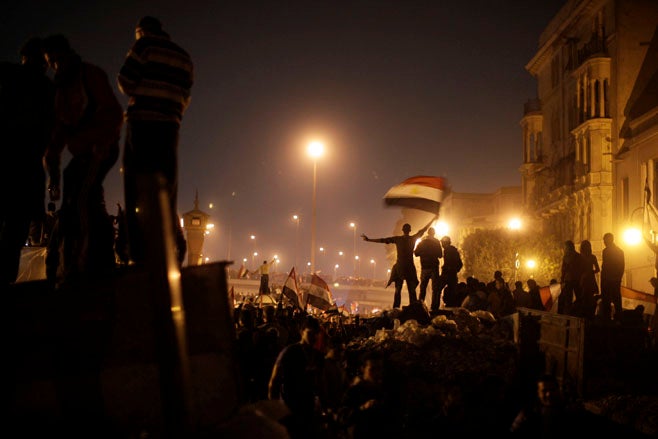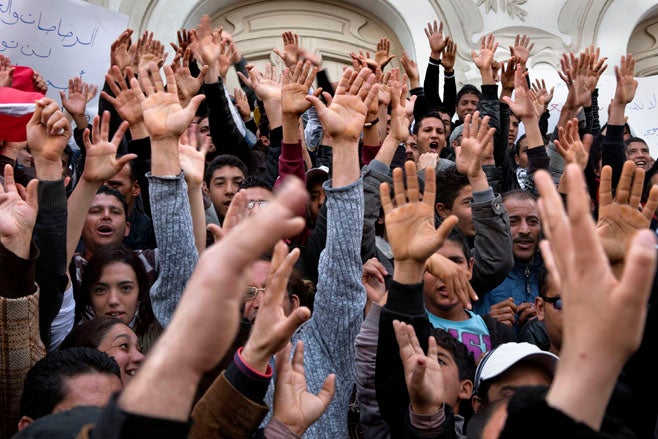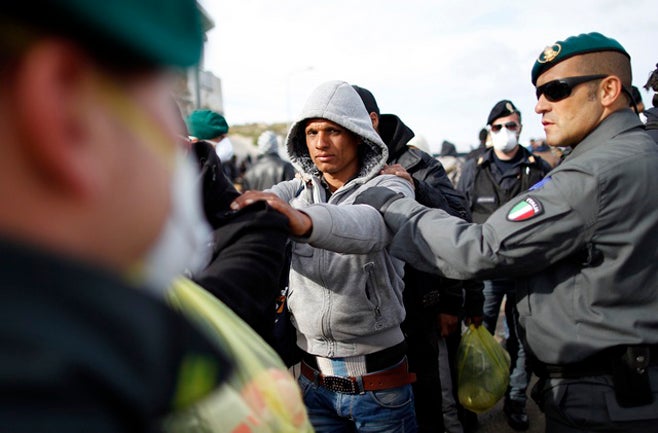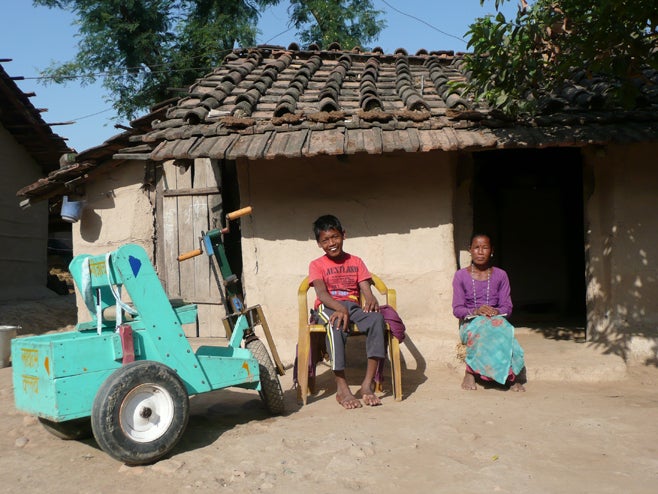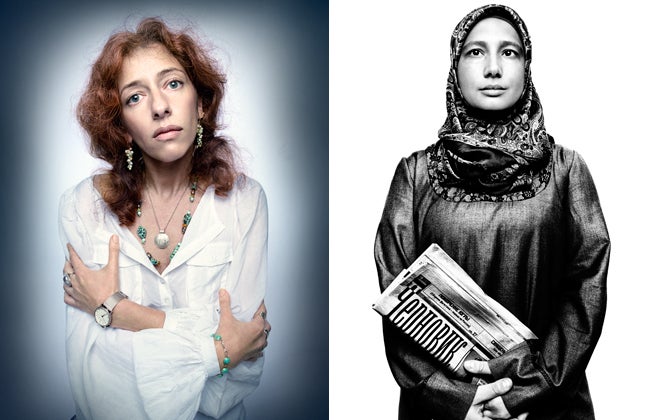With presidential elections in Turkmenistan scheduled for February 2012, President Gurbanguly Berdymukhamedov’s authoritarian rule remains entrenched, highlighting Turkmenistan’s status as one of the world’s most repressive countries.
The country remains closed to independent scrutiny, media and religious freedoms are subject to draconian restrictions, and human rights defenders face constant threat of government reprisal. The United Nations Committee against Torture expressed concern about allegations of widespread torture and ill-treatment, and of enforced disappearances in custody.
Turkmenistan continued to expand relations with foreign governments and international organizations, but with no meaningful outcomes for human rights.
Cult of Personality and Presidential Elections
Five years after the death of dictator Saparmurad Niyazov, President Berdymukhamedov, his relatives, and associates enjoy unlimited power and total control over all aspects of public life in Turkmenistan. In 2010 and 2011 newspapers and other publications began to bestow on Berdymukhamedov the honorific title arkadag (patron), symbolizing the strengthening of his cult of personality.
The only political party in Turkmenistan is the Democratic Party of Turkmenistan, led by Berdymukhamedov, and the president did not fulfill his pledge to ensure adoption of a new law on political parties.
In June 2011 Berdymukhamedov invited exiled political opposition leaders to return to Turkmenistan to run in the presidential election and promised to guarantee their safety. It is not clear whether this pledge would be honored, since key exiled leaders were convicted in absentia in closed trials years ago on embezzlement and treason charges.
Civil Society
The repressive atmosphere in Turkmenistan makes it extremely difficult for independent NGOs to operate. Activists and journalists in Turkmenistan, and in exile, face constant threat of government reprisal. The security services frequently warn activists not to meet with visiting foreign delegations.
In April, on the eve of the arrival of a delegation from the European Parliament to examine the country’s human rights situation, the security services arrested Bisengul Begdesenov, who had previously tried unsuccessfully to register an ethnic Kazakh cultural center in Ashgabat, the capital. According to Begdesenov’s family, officials searched his apartment without a warrant and confiscated computers and other materials. In May a court handed him a suspended nine-year sentence for swindling and abetting bribery.
Freedom of Media and Information
All print and electronic media are state-controlled. It is very difficult for foreign media outlets to cover Turkmenistan because they often cannot access the country.
Internet access remains limited and heavily controlled by the state. The country’s only internet service provider is state-operated, and political opposition websites are blocked. Internet cafes require visitors to present their passports. The government is known to monitor electronic and telephone communications.
In August 2011 Berdymukhamedov ordered that cable television replace satellite dishes. If enforced, the order would significantly curtail viewers’ access to information, especially foreign programming, since the government could at any point interfere with cable television broadcasts. Berdymukhamedov’s attempt in 2007 to dismantle satellite dishes failed due to an international outcry.
Freedom of Movement
Turkmenistan’s government continues to restrict peoples’ right to travel freely internationally by means of an informal and arbitrary system of travel bans commonly imposed on, but not limited to, civil society activists and relatives of exiled dissidents. Such a ban can be arbitrarily imposed on anyone, including students studying in foreign universities or citizens traveling abroad for business.
According to the Turkmen Initiative for Human Rights (TIHR)—a Vienna-based exiled human rights group—Turkmen migration services on April 6, 2011, stopped health officials at passport control, preventing them from traveling to the United States for an exchange program. The authorities claimed the officials had unlawfully brought medicines into Turkmenistan, although no charges have been brought against them.
TIHR further reported that 1,600 Turkmen students were banned without explanation from departing to study to Tajikistan in September 2011. Berdymukhamedov also banned, without explanation, government officials from travelling to Iran for medical treatment.
Freedom of Religion
The right to freedom of thought, conscience, and religion is heavily restricted in Turkmenistan, where no congregations of unregistered religious groups or communities are allowed. Religious communities have been unable to register for years.
Ilmurad Nurliev, a Pentecostal pastor sentenced in October 2010 to four years in prison on what appear to be bogus swindling charges, continues to serve his sentence. According to Forum 18, an independent international religious freedom group, in January 2011 two Jehovah's Witnesses, who are conscientious objectors, were handed 18-month prison sentences for evading military service. At this writing there were seven such prisoners.
Forum 18 also reported that local officials harassed and insulted about 40 members of a Baptist church vacationing together on the Caspian Sea, causing them to leave the area.
Political Prisoners, Enforced Disappearances
Unknown numbers of individuals continue to languish in Turkmen prisons on what appear to be politically motivated charges. The justice system lacks transparency, trials are closed in political cases, and the overall level of repression precludes any independent human rights monitoring. The government has persistently denied access to the country for independent human rights monitors, including the International Committee of the Red Cross, NGOs, and 10 UN special procedures whose requests for visits have not been answered.
The government ignored calls by the UN Committee against Torture and the Working Group on Arbitrary Detention to release well-known political prisoners Annakurban Amanklychev and Sapardurdy Khajiev, who had worked with human rights organizations prior to their imprisonment in 2006. Political dissident Gulgeldy Annaniazov, arrested in 2008, also remains imprisoned.
In October 2011 a court sentenced Radio Free Europe/Radio Liberty (RFE/RL) correspondent Dovlet Yazkuliev to five years imprisonment on bogus charges of urging a relative to commit suicide. The charges appeared to be brought in retribution for Yazkuliev’s work. In July the security services questioned and warned Yazkuliev that he could face criminal slander charges for his reporting on the July 2011 explosions in Abadan (see below). In late Octover Yazkuliev was released under a presidential prison amnesty.
Another RFE/RL contributor, Amangelen Shapudakov, 80, was detained on March 7, 2011, and forcibly confined in a psychiatric facility for 43 days. Police previously detained Shapudakov in February 2011, after he complained to international organizations about official harassment. According to RFE/RL, Shapudakov had also been banned from leaving his home district.
In March Jumageldi Mulkiyev was dismissed from his position as editor-in-chief of the magazine Turkmen World and forcibly confined for eight days in a psychiatric hospital after his return from holiday in Iran.
In April 2011 the security services imprisoned Bazargeldy and Ayjemal Berdyev, who have sought redress for more than a decade for their alleged torture in custody and the arbitrary seizure of their property in the 1990s. The arrests occurred on the eve of the European Parliament’s visit. Human Rights Watch does not know their current whereabouts.
Approximately 50 prisoners convicted in relation to the November 2002 alleged assassination attempt on Saparmurat Niyazov—including former Foreign Minister Boris Shikhmuradov and Turkmenistan’s former ambassador to the Organization for Security and Co-operation in Europe, Batyr Berdiev—remain the victims of enforced disappearances. Their fate is unknown, and their whereabouts not disclosed even to their families. Human Rights Watch is aware of unconfirmed reports that several defendants in the 2002 plot case have died in detention.
Illegal House Evictions in Ashgabat
In 2011 local authorities in Ashgabat and the surrounding area continued to evict, expropriate, and demolish homes of residents without a court ruling or providing adequate compensation, alternative accommodations, or notice. The demolitions make way for construction as part of a massive urban renewal project initiated in the late 1990s. While official statistics are not published, Human Rights Watch estimates that in the past decade the projects have displaced thousands of residents.
On June 8, 2011, police in Ashgabat broke up a small and peaceful demonstration of evictees protesting their difficulties receiving alternative accommodation.
Explosion in Abadan
On July 7, 2011, high temperatures caused a huge explosion of ammunition in the city of Abadan, resulting in dozens of civilian deaths. The government concealed information about the explosion, sealed the city, and shut down mobile and internet lines, hindering people’s efforts to locate loved ones and concealing the extent of destruction.
Key International Actors
Several international actors continue to seek to leverage Turkmenistan’s energy wealth, pushing aside concerns about the government’s human rights record. The European Union in particular continues to press forward with a Partnership and Cooperation Agreement (PCA) with Turkmenistan, frozen since 1998 over human rights concerns, without requiring any human rights reforms in exchange. Throughout 2011 the European Parliament continued to hold up approval of the PCA over human rights concerns. At this writing the PCA was pending European Parliament approval.
Two national parliaments—in France and the United Kingdom—have yet to ratify the PCA. Human rights conditions for ratification that the French parliament set in 2010 remain in place. The UK Foreign Commonwealth Office’s annual report on human rights failed to convey the severity of Turkmen government abuses and suggested that UK companies could support the government’s efforts to build new prisons.
The UN Committee against Torture reviewed Turkmenistan in May 2011 and found “numerous and consistent allegations about the widespread practice of torture and ill-treatment.” It voiced concern about enforced disappearances and incommunicado detention and requested that the Turkmen government report back within one year on measures taken to address these and other concerns.
